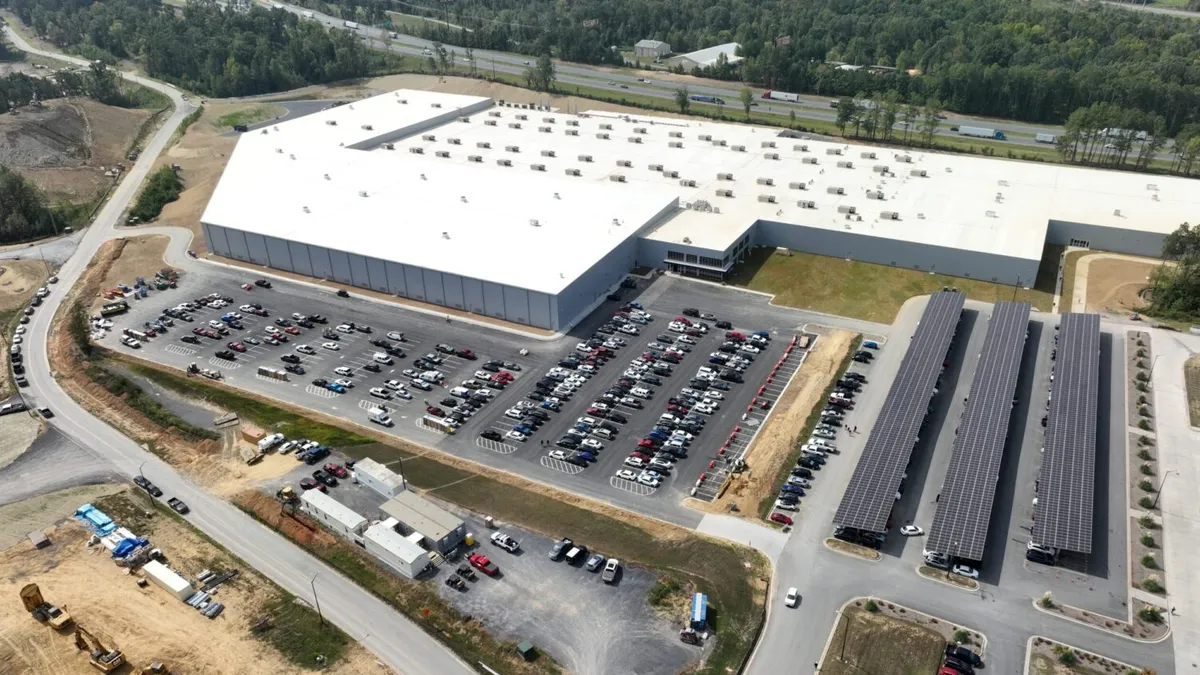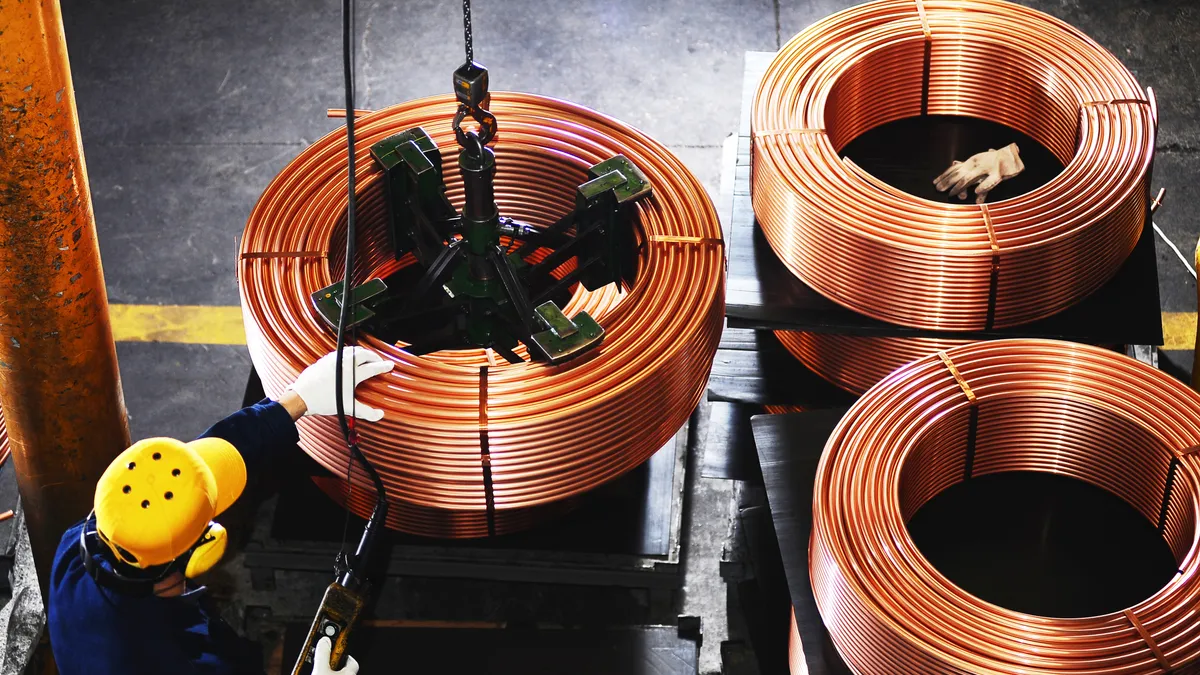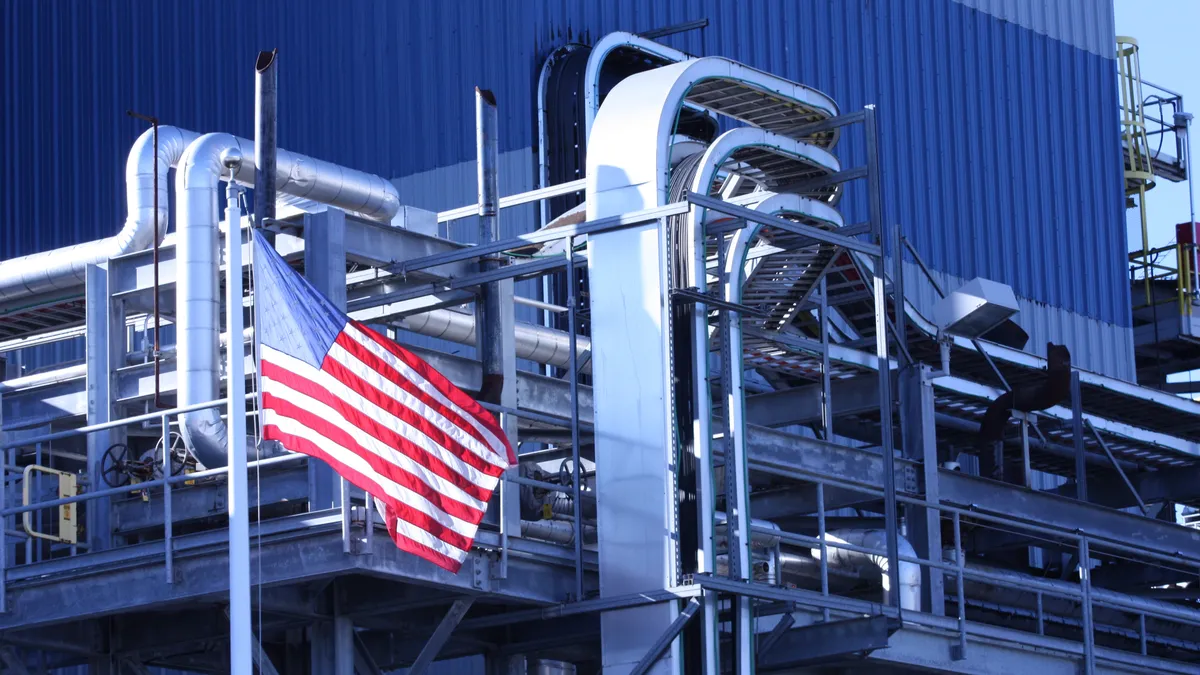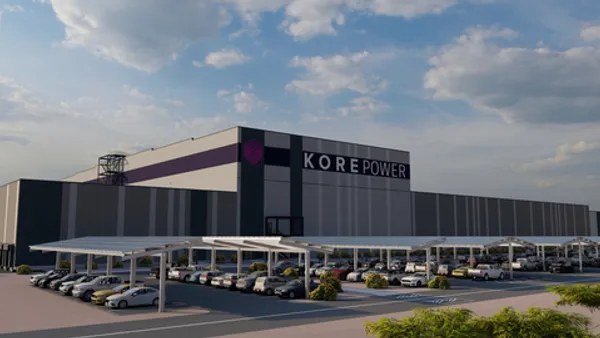Dive Brief:
- Solar panel manufacturer Qcells opened its expanded solar module factory in Dalton, Georgia, last week, adding two gigawatts of solar capacity to the plant, enough to produce nearly 30,000 solar modules a day.
- The South Korea-based company called the facility the largest of its kind in the Western Hemisphere and the first expansion of a solar panel plant since the Inflation Reduction Act was passed.
- The expansion is part of a $2.5 billion manufacturing investment from Qcells into the Dalton site and an upcoming factory in Cartersville, Georgia. The company expects the two sites to include 8.4 GW of annual production capacity by 2024, enough to power 1.3 million homes annually.
Dive Insight:
The expansion of the Dalton facility will create 510 new jobs and will focus on the company’s Q.TRON G2 residential and bifacial modules for commercial and utility markets.
“Completing this factory marks the third expansion we’ve made in Dalton, and it’s just the beginning of Qcells’ larger mission to build a fully integrated solar supply chain in America,” CEO Justin Lee said in a statement.
The addition completes the first phase of Qcells' mission to establish a fully integrated solar supply chain in the U.S., which the company announced in January with its $2.5 billion investment.
The Cartersville plant is slated to begin operations in 2024 and will manufacture solar ingots, wafers, cells and finished panels.
Solar panels built from the two Georgia sites could reduce over 12 million tons of CO2 equivalents per year, Qcells said in a statement.
Qcells is one of multiple South Korea-based firms increasing manufacturing investment in the U.S. in the wake of the IRA. South Korea-based firms announced the most foreign direct investment projects in the first year of the law, with 25 companies investing more than $16 billion and creating 13,515 jobs.
The company’s expansion also comes as the Biden administration pushes to make the U.S. solar industry less dependent on Southeast Asia. In May, President Biden chose not to reinstate tariffs on imports from Southeast Asia to combat the flood of cheaper solar panels the country receives from overseas.
“America is now on track to increase domestic solar panel manufacturing capacity eight-fold by the end of my first term,” Biden said in a veto memo released by the White House. “But that production will not come online overnight.”
Some U.S.-based solar panel manufacturers with modules made from components produced entirely in the country, such as Arizona-based First Solar, are opening new sites in the country. The company announced its plans to build its fifth U.S. factory for $1.1 billion in July.












